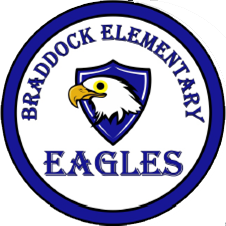School Innovation and Improvement Plan
Outcome goals for this academic year.
Reading By 3rd Grade
Outcomes:
- The percentage of Multilingual Learners grades 1-3 who demonstrate appropriate progress in WIDA language
acquisition will increase by 5 percentage points from Spring 2024 to Spring 2025. - The percentage of students in Grades K-3 meeting or exceeding the VALLSS screener benchmarks
will increase by 5 percentage points from fall 2024 to spring 2025.
Strategies:
- Increase opportunities for English Language Development through use of embedded strategies during whole group instruction and intentional small group instruction focused on specific student needs.
- Leverage use of daily, explicit language comprehension lessons from the new core curriculum for building knowledge and vocabulary.
- Improve integrity of implementation of new core curriculum, English Language Development program, and/or intervention programs by using FCPS-adopted resources with fidelity.
Mathematics
Outcome: By June 2025, 50%+ of students will make the EOY benchmark as measured by iReady.
-Grade 1: At the EOY 24-25 SY, 50% of students will make their EOY benchmark of 402 or higher on the iReady assessment.
-Grade 2: At the EOY 24-25 SY, 50% of students will make their EOY benchmark of 428 or higher on the iReady assessment.
-Grade 3: At the EOY 24-25 SY, 46% of students will make their EOY benchmark of 449 or higher on the iReady assessment.
-Grade 4: At the EOY 23-25 SY, 53% of students will make their EOY benchmark of 465 or higher on the iReady assessment.
-Grade 5: At the EOY 24-25 SY, 56% of students will make their EOY benchmark of 480 or higher on the iReady assessment.
Strategies:
- Increase teacher's implementation of strategies and conversation structures that increase academic talk between students related to Shift 4: from show and tell to share and compare.
- Increase teacher implementation of explicit instruction and other components of effective mathematics intervention.
- Increase teachers' content knowledge and implementation of the 2023 FCPS mathematics program of studies.
- Access to Rigor: Cultivate a classroom culture of thinking by promoting curiosity, centered on student thinking, and planning for relevant and enriching learning experiences.
Chronic Absenteeism
Outcome: Ensure students feel safe, included, and supported in the school environment.
Goal: By June 2025, our school will reduce its chronic absenteeism rate by 2 percentage points from 13% in June 2024 to 11% in June 2025, as evidenced by our school’s Chronic Absenteeism Data reflected in the Attendance Dashboard.
Strategy 1: Create a school culture of engagement & belonging for students and families. Every staff, student, and family will feel safe and connected to the school community.
Strategy 2: Understand root causes of student absenteeism. Strengthen programmatic responses to attendance barriers.

